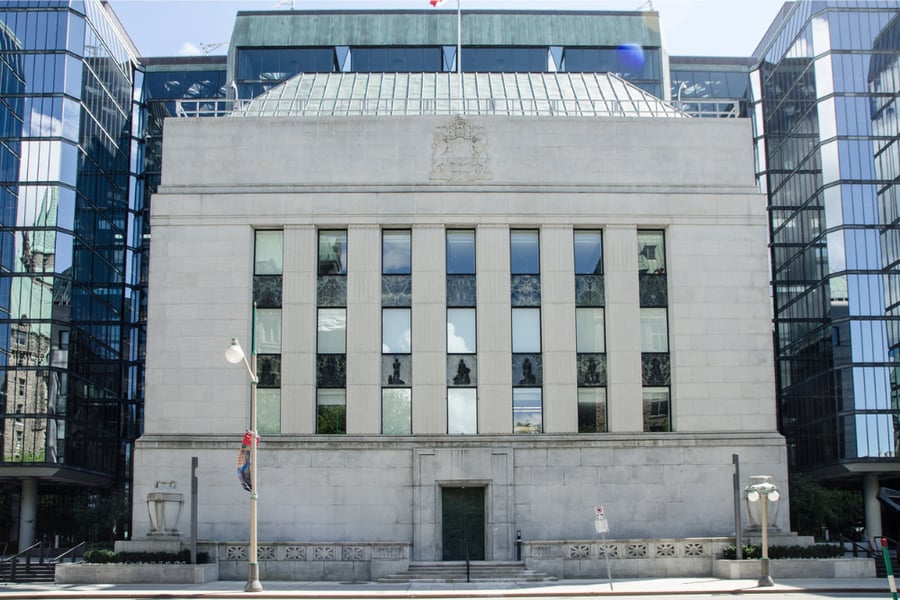Will COVID-19's intense second wave lead to a micro-cut in the overnight rate?

Ahead of the Bank of Canada’s policy announcement tomorrow, a new Finder survey has revealed that the vast majority of economists believe that the central bank will hold the overnight rate at 0.25% - possibly for three years.
Around 69% of the economists polled projected the next rate move to be at least two years from now, while 31% said that the rate will hold until early 2024.
As for the direction of the movement, 87.5% of economists believe that the next rate adjustment will be upward. Only 12.5% of those surveyed have forecasted a drop in rates before they rise again.
“I expect to see no change in interest rates. I do not think the bank will cut rates less than 26 basis points as some think because borrowing is already strong for home purchases,” said Sherry Cooper, chief economist at Dominion Lending Centres.
With the pandemic situation continuing to evolve, however, the market has to be realistic about the impact of any interventions by the central bank.
“Things [will] turn for the worse if future COVID-19 variants were delaying herd immunity for a long period,” said Sebastien Lavoie, chief economist at Laurentian Bank. “There is not much monetary policy can do to mitigate the near term impact related to the worsening second wave.”
Moshe Lander, professor of economics at Concordia University, agreed that the BoC is running out of standard policy tools, “and is now resorting to unconventional ones to keep the economy afloat.”
“As the federal government incurs record-breaking deficits and as the pandemic is far from over, I think the time is coming for the bank to test the absolute limits of its conventional tools as more of the responsibility for maintaining the economy from imploding will fall to it,” Lander said.
Still, the overall economic landscape remains positive, even if some of the benefits may take longer than expected to reveal themselves.
“Although some immediate risks to the economy have gone up with intensified restrictions to stem the spread of COVID-19, medium-term risks relevant for setting monetary policy have abated,” assured Brett House, vice president and deputy chief economist at Scotiabank. “Vaccines are being delivered about a year ahead of the Bank of Canada’s earlier expectations; the U.S. stimulus and funding bill passed and a government shutdown was averted, which will provide some positive spillover effects into Canada; and financial conditions remain favourable to growth.”



